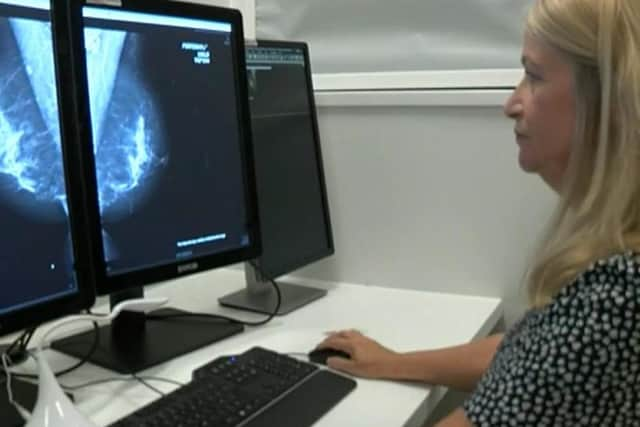Why it’s time to break the stereotype of what it means to work in technology - Cheryl Macfarlane
Yet still only 24 per cent of the digital workforce is female.
If we want one of our fast-growing employment sectors to be inclusive and representative of the society it seeks to improve, then it’s time to break the stereotype of what it means to work in tech.
Advertisement
Hide AdAdvertisement
Hide AdA supermarket worker, teacher, mechanic and a pharmacist might not appear to have much in common. But all of these professionals work in industries that have a deep reliance on technology and will be required to have some degree of digital literacy.


If we want to rethink what a digital professional looks like, we need to start by looking at what we view as a digital career. Prospective students who come to enrol tell me that one of the top reasons for not pursuing a digital pathway is the perception that tech careers are highly specialised and highly skilled.
The reality is that 82 per cent of job roles now list digital skills as a basic requirement. Working in the industry isn’t all about complex coding and data, there is much more variety than that. And the ‘digital sector’ is not a standalone entity; there are lots of opportunities to combine digital skills with sports, science and the arts.
Digital technologies are used across nearly all modern industries, meaning that there will be chances to upskill and break into the sector wherever your personal passions and strengths lie.
Advertisement
Hide AdAdvertisement
Hide AdNegative female stereotypes continually impact the confidence of women to pursue certain career options. When it comes to digital, there’s a perception that men are better as they traditionally excel in subjects that involve mathematics and logical reasoning.
But research shows there are no cognitive biological differences between genders that would make this the case. Yet women are deterred from science, technology, engineering and maths (STEM) careers as a result of such common misconceptions.
Moreover, a lot of the skills needed to be successful in the industry are ones that women traditionally excel in, such as communication, collaboration and creativity.
There’s been much talk in academic circles about science, technology, engineering, arts and maths (STEAM) education and the idea that the arts are an integral part of innovation in fields such as information technology. This means women breaking into the digital industry should be encouraged to bring whatever skills they have to the table.
Advertisement
Hide AdAdvertisement
Hide AdYoung women often shy away from digital careers because they perceive such roles to be isolated and boring, but there are plenty of opportunities to pursue creative opportunities, whether that be as a video game designer, social media manager or marketing analyst.
In a world of faceless algorithms and artificial intelligence (AI), it’s easy to understand why the tech industry can be perceived as soulless. Half of all females say the most important factor in deciding on a career is whether they believe the work they’ll be doing will make the world a better place, so this perception presents a significant barrier. There’s much debate to be had on the ethics of various aspects of technology, but it’s undeniable that digital advancements can be a force for good.
Right on our doorstep, Leeds is a thriving hub for digital healthcare, with the presence of NHS Digital and key primary care systems suppliers. The services provided by these agencies underpin the wider health and social care sector.
Furthermore, digital technologies are crucial for deepening our understanding of key global issues like climate change.
Advertisement
Hide AdAdvertisement
Hide AdCommon misconceptions can lead to a sense that tech careers are not accessible to women, or demand a painstaking amount of time and effort. However, the hybrid and remote working revolution ushered in by the pandemic has meant job roles, especially in tech, are more flexible than ever.
According to a recent study, the UK’s tech sector offers the highest proportion of remote opportunities, with 4/5 of applicants being given the option of remote or hybrid working. Working from home allows employees to have more control over their hours to accomodate other commitments. This improved work-life balance is something 62 per cent of women prioritise when looking for a role.
It’s also important to recognise that routes into the sector have expanded greatly. If you want that PhD in Computer Science you should strive towards it, but there are plenty of other ways in. Digital apprenticeships are on the rise and are a great way of training a new generation of professionals whilst plugging a growing skills gap.
Cheryl Macfarlane is deputy head of apprenticeship, digital and IT at Leeds City College.